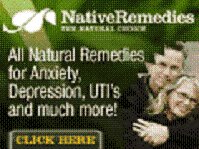
|
|||||||
Diagnosing ADD and ADHDDiagnosing ADD (attention deficit disorder) or ADHD (attention deficit hyperactivity disorder) should be carried out by a qualified mental health practitioner. Sometimes, the signs and symptoms of ADD / ADHD - including hyperactivity, impulsivity and inattention - can be confused with other mental or physical conditions. Your practitioner should run a full assessment and evaluation which reviews a complicated set of symptoms, so seeing a professional who specializes in the disorder can be helpful. The conditional assessment used at present does not rely on laboratory or imaging testing, but rather on observation of behavioral patterns and their duration. In diagnosing ADD / ADHD, the American Academy of Pediatrics recommends that a clinical evaluation for childhood ADD / ADHD include:
Share YOUR Knowledge and Experiences
or Read Others' Contributions Click here for more pages and articles on Attention Deficit Disorder (ADD) / Attention Deficit Hyperactivity Disorder (ADHD). A note about Diagnosing ADD and ADHDIn natural health and healing, we believe in holistic health and healing, as we realize that different parts of the human body are highly interlinked, often beyond Man's understanding. We also believe that the body has the ability to heal itself of any disease, even supposedly incurable diseases. In order to do so, the body needs the support of some basic dietary and lifestyle good health habits, such as a full body detox and a proper understanding and application of nutrition. No matter how remote or unrelated a health condition may seem, these fundamental health steps will greatly magnify the effects and benefits of any of our health-promoting efforts, including the use of specific natural health remedies.
As ADD / ADHD has come to light as a significant disorder only in recent years, many adults have now only just discovered that they have the condition. Often, diagnosing ADD / ADHD occurs as a result of self-education on the topic, or because the symptoms take over their daily life to such a degree that normal functioning becomes severely impaired and the adult seeks out help. ADD / ADHD can also occur in conjunction with other mental afflictions like depression, anxiety and obsessive-compulsive disorder (OCD); this makes diagnosing ADD / ADHD less straightforward than it otherwise would be. In order to fit in with the establish way of diagnosing ADD / ADHD, both children and adults must fit certain criteria, in addition to displaying hyperactivity, inattention or impulsivity, as follows:
Certain life altering circumstances can cause reactions that masquerade as ADD / ADHD, such as divorce, death in the family or other traumatic events; this makes diagnosing ADD / ADHD a little trickier. In addition, the following conditions can often co-occur with the disorder, but can also be mistaken for it so that proper treatment fails to be implemented; again, these must be taken into account in diagnosing ADD / ADHD. These conditions include:
Read More: More on Attention Deficit Disorder (ADD) / Attention Deficit Hyperactivity Disorder (ADHD) | Natural Health Remedies for Various Ailments and Conditions | Home Page | Site Search
Click here to learn more about how to treat ADHD naturally. Click here for natural, herbal and homeopathic remedies for ADD and ADHD, as well as for ADD and ADHD in children.
Tweet
Some Related Attention Deficit Disorder (ADD) / Attention Deficit Hyperactivity Disorder (ADHD) Pages Return from this page to Natural Health Remedies, Natural Health Cures, Organic Remedies & Organic Cures Return from this page Diagnosing ADD and ADHD to All 4 Natural Health... attaining good health naturally... Home Page
|
Get Quality Natural Health Supplements at Affordable Prices. $5 or $10 discount for new customers [?] Subscribe To This Site
Tweet |
||||||
|
Site Search
|
|||||||
|
This website's content must not be reproduced or republished without express permission. Site Search The information provided on this website is not meant to diagnose, prevent, treat or cure any disease. It is to be taken as suggestions or educational material and not to be considered professional advice. Copyright© 2007-2014 All4NaturalHealth.com. All Rights Reserved. Home | Links & Resources | Privacy Policy | Disclaimer | Subscribe to E-zine | Site Search | Contact Us Return to top |
|||||||









New! Comments
Have your say about what you just read. Leave a comment in the box below.